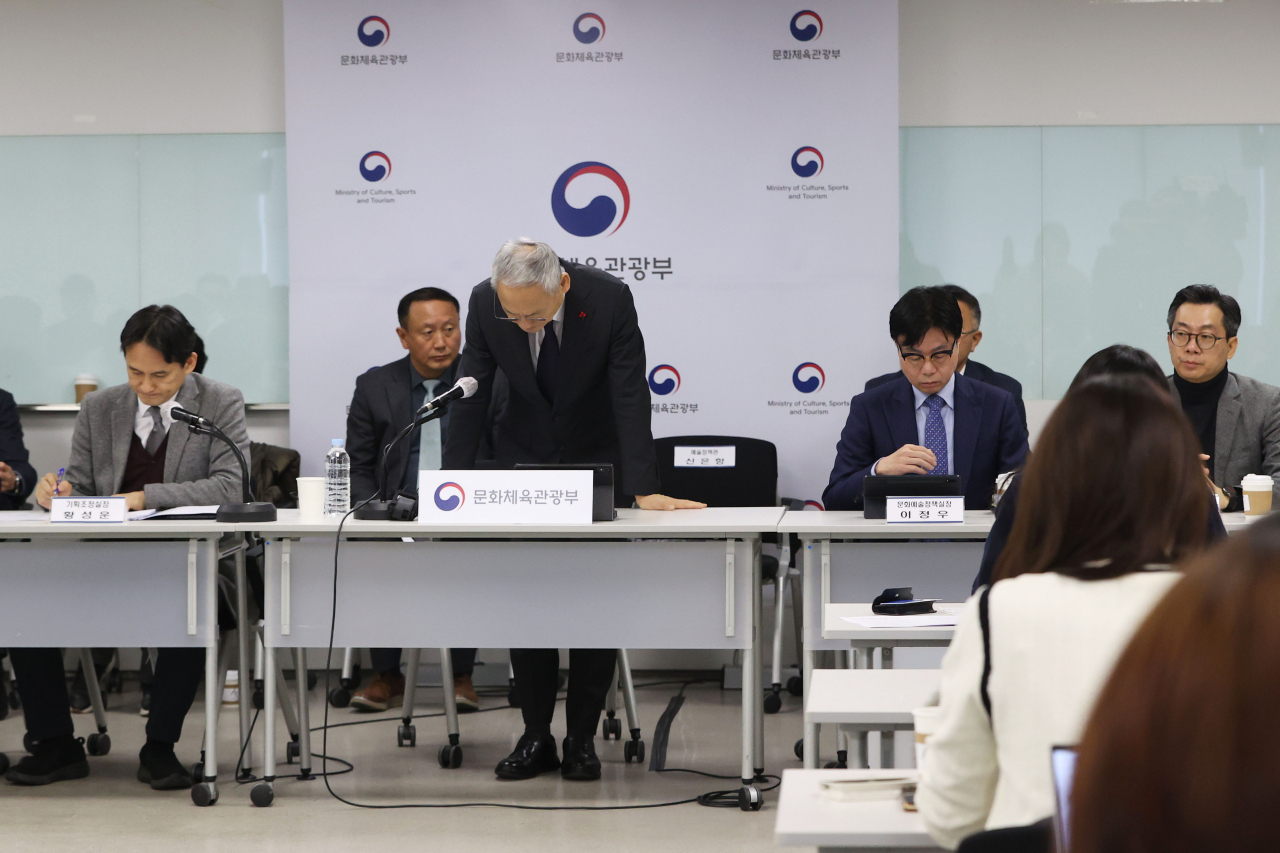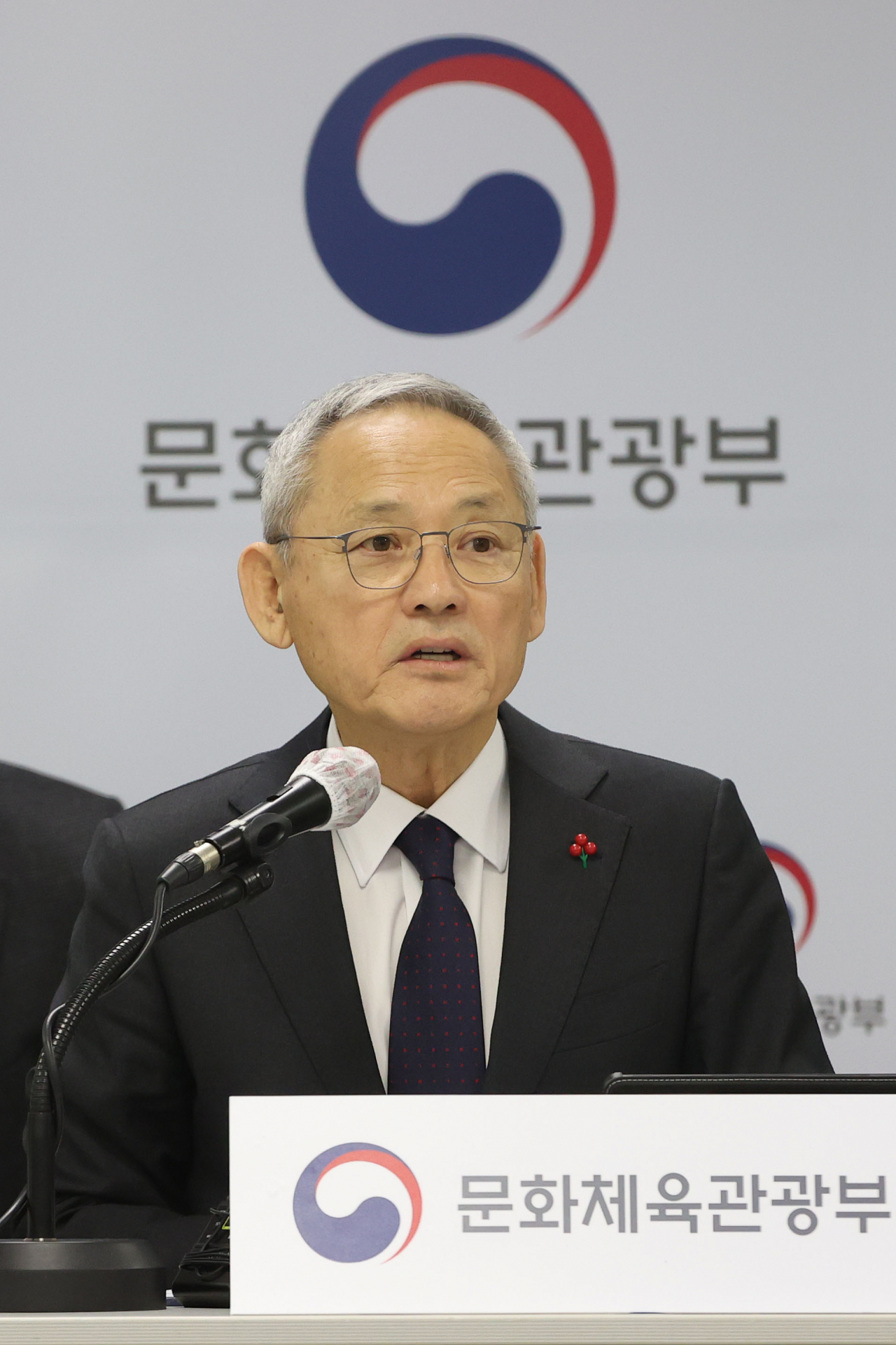 |
Minister of Culture, Sports and Tourism Yu In-chon bows in apology during the ministry's regular briefing held at the National Museum of Modern and Contemporary Art in Seoul on Wednesday. (Yonhap) |
Culture Minister Yu In-chon on Wednesday addressed the controversy surrounding the closure of the Korea National University of Arts (K-Arts) during the martial law rule declared by President Yoon Suk Yeol on Dec. 3, refuting claims that he had ordered the move.
“It appears that the government nighttime on-duty officer’s recommendation to ‘restrict access’ was communicated to the Culture Ministry’s on-duty staff, who then relayed it to the affiliated educational institutions,” Yu said during the ministry’s regular briefing in Seoul. “This directive was not limited to K-Arts, but extended to other organizations under the ministry, including the Korea National University of Heritage.”
Regarding allegations that a Culture Ministry official ordered K-Arts to send students home on Dec. 3, Yu said the call seems to have been made out of concern for students' safety, as many were working late on the school campus.
Yu further suggested taking this as an opportunity to discuss transforming K-Arts into a national university.
“K-Arts has been in operation for 30 years, and I believe it would be beneficial for it to function more autonomously as a national university. We plan to discuss transitioning it into an independent arts institution,” he said.
On Monday, 117 cultural, arts and civic groups accused Yu of ordering the closure and control of the K-Arts following the declaration of martial law and filed a police complaint against him on allegations of rebellion and abuse of authority.
 |
Minister of Culture, Sports and Tourism Yu In-chon speaks during the ministry's regular briefing held at the National Museum of Modern and Contemporary Art in Seoul on Wednesday. (Yonhap) |
The groups argue that while Yu did not attend the cabinet meeting where martial law was discussed, the closure of K-Arts implies his tacit approval of the decree.
K-Arts remains the only university confirmed to have been ordered to shut down on the day of the martial law.
"The Culture Ministry actively supported Yoon Suk Yeol's illegal martial law by enforcing the closure of K-Arts solely because it is an affiliated institution. The swift and decisive actions of the ministry would not have been possible without the direction and judgment of the minister," the groups said in a statement.
Yoo also indicated his opposition to the martial law declaration, which he was accused of defending in the speech he made on Dec. 10 as the government spokesperson.
“At first, I thought the announcement of martial law was fake news. Martial law is fundamentally wrong in a country like South Korea, which holds a high position both economically and culturally in the international community,” Yu said.
“There was an opinion that, given the crisis, it would be appropriate for the culture minister to act as the government spokesperson under the Government Organization Act, so I took on the role. It wasn’t done with any significant political agenda in mind,” he added.






![[Lee Byung-jong] The perils of political leadership](http://res.heraldm.com/phpwas/restmb_idxmake.php?idx=644&simg=/content/image/2024/12/19/20241219050082_0.jpg)
